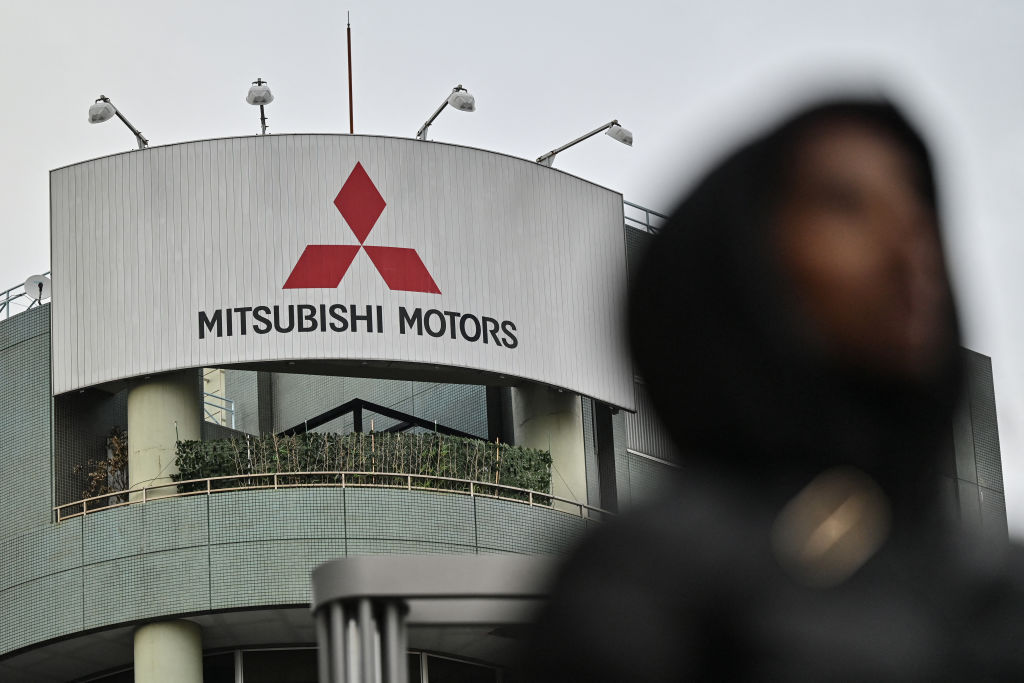
<strong>Image Credits:</strong><a href="https://www.gettyimages.in/search/photographer?photographer=RICHARDA.BROOKS" target="_blank">RICHARD A. BROOKS <span class="screen-reader-text">(opens in a new window)</span></a> / Getty Images
Mitsubishi Partners with Foxconn to Source New EVs for Australia and New Zealand Market
Table of Contents
- Mitsubishi and Foxconn: A New Electric Vehicle Partnership
- Understanding Foxtron Vehicle Technology
- Renault-Nissan-Mitsubishi Alliance: Expanding Global EV Strategy
- Market Implications for Australia and New Zealand
- What This Reveals About Automotive Industry Trends
- Benefits for Australian and New Zealand Consumers
Mitsubishi is looking to expand its electric vehicle lineup through partnerships with Foxconn and its Alliance partners. (Image: Representative)
Mitsubishi and Foxconn: A New Electric Vehicle Partnership
Mitsubishi Motors has taken a significant step forward in its electrification strategy by entering into discussions with Taiwan-based Foxconn’s electric vehicle division. The Japanese automaker announced on Wednesday that it has signed a memorandum of understanding with Foxtron Vehicle Technology to develop a new OEM (Original Equipment Manufacturer) electric car model specifically targeted for the Australia and New Zealand markets.
This strategic partnership aims to bring new Mitsubishi-branded electric vehicles to Oceania by the latter half of 2026. The companies will engage in further discussions to finalize the agreement, which represents Mitsubishi’s commitment to expanding its electric vehicle lineup in key markets through strategic collaborations rather than solely relying on in-house development.
Mitsubishi Motors has signed a memorandum of understanding with Foxtron Vehicle Technology (a Foxconn joint venture) to develop electric vehicles for the Australia and New Zealand markets with a targeted launch in the second half of 2026.
Understanding Foxtron Vehicle Technology
Foxtron Vehicle Technology is not a standalone Foxconn enterprise but rather a joint venture between Hon Hai Precision Industry Co. (commonly known as Foxconn) and Taiwan-based Yulon Motor Co. This partnership combines Foxconn’s manufacturing expertise and technological capabilities with Yulon’s established automotive industry experience.
Notably, Yulon Motor already has significant ties to the Japanese automotive industry, as it currently assembles and manufactures vehicles for Nissan in Taiwan. This existing relationship creates an interesting dynamic, considering Nissan and Mitsubishi are both part of the Renault-Nissan-Mitsubishi Alliance, potentially facilitating smoother collaboration between Mitsubishi and Foxtron.
Foxconn has been aggressively expanding into the electric vehicle manufacturing space in recent years, leveraging its electronics manufacturing expertise to become a significant player in the rapidly growing EV market. The company has developed its own electric vehicle platform and has been establishing partnerships with various automotive brands to position itself as a major EV contract manufacturer.
| Partnership Entity | Role | Contribution |
|---|---|---|
| Mitsubishi Motors | OEM Brand | Brand, distribution, marketing, specifications |
| Foxconn | Joint Venture Partner | Manufacturing expertise, technology, electronics |
| Yulon Motor Co. | Joint Venture Partner | Automotive expertise, assembly experience |
| Foxtron Vehicle Technology | EV Development Entity | Electric vehicle development and production |
Renault-Nissan-Mitsubishi Alliance: Expanding Global EV Strategy
The Foxtron partnership represents just one component of Mitsubishi’s broader electrification strategy. The company is simultaneously leveraging its three-way alliance with Renault and Nissan to strengthen its electric vehicle offerings across multiple global markets through vehicle sharing arrangements.
For the North American market, Mitsubishi has announced plans to start selling a rebadged version of the Nissan Leaf electric car beginning in the second half of 2026. This approach allows Mitsubishi to rapidly expand its electric vehicle portfolio while minimizing development costs and taking advantage of Nissan’s established EV technology.
In a reciprocal arrangement that highlights the alliance’s collaborative approach, Nissan will also sell a rebranded plug-in hybrid electric vehicle model manufactured by Mitsubishi in North America next year. This strategy of cross-badging vehicles enables both companies to offer more diverse product lineups efficiently.
Mitsubishi’s multi-pronged approach combines Foxconn partnership for Australia/New Zealand with Alliance partnerships (rebadged Nissan Leaf for North America and Renault models for Europe) to rapidly expand its global EV presence without the full burden of independent development.
Beyond North America and Oceania, Mitsubishi has also indicated plans to sell rebranded electric vehicle models produced by Renault in European markets. This comprehensive approach demonstrates how the company is strategically utilizing different partnerships across various regions to build a global electric vehicle presence.
Market Implications for Australia and New Zealand
Mitsubishi’s decision to partner with Foxtron specifically for the Australia and New Zealand markets highlights the strategic importance of these territories to the Japanese automaker. Mitsubishi has historically maintained a strong presence in the Oceania region, particularly in the SUV and pickup truck segments, making this a natural market for expanding its electric vehicle offerings.
Australia and New Zealand present unique challenges and opportunities for electric vehicle adoption. Both countries have vast geographical areas with significant distances between population centers, making range anxiety a particular concern for potential EV buyers. However, both markets are also seeing increasing consumer interest in electric vehicles and supportive government policies aimed at reducing carbon emissions.
By partnering with Foxtron, Mitsubishi may be able to bring more affordable electric vehicles to these markets more quickly than would be possible through in-house development. This could potentially help accelerate EV adoption in a region where price sensitivity and practical considerations like range have been significant factors limiting widespread electric vehicle uptake.
What This Reveals About Automotive Industry Trends
The partnership between Mitsubishi and Foxtron exemplifies several significant trends reshaping the global automotive industry. First and foremost, it highlights the growing importance of strategic collaborations and partnerships in navigating the complex transition to electric mobility.
Traditional automakers are increasingly recognizing that the shift to electric vehicles requires massive investments in new technologies, platforms, and manufacturing capabilities. Rather than bearing these costs independently, many are forming strategic alliances and partnerships with technology companies, other automakers, or specialized EV manufacturers to share development costs and accelerate their electrification timelines.
The involvement of Foxconn—a company primarily known for electronics manufacturing rather than automotive production—also underscores the blurring lines between the technology and automotive sectors. As vehicles become increasingly defined by their software and electronic components, technology companies are finding new opportunities to enter the automotive value chain.
The Mitsubishi-Foxconn partnership demonstrates how traditional automakers can leverage manufacturing expertise from electronics companies to accelerate their EV transition while maintaining brand control and market specificity.
Benefits for Australian and New Zealand Consumers
For consumers in Australia and New Zealand, Mitsubishi’s partnership with Foxtron could translate into several potential benefits. First, it may bring new electric vehicle options to these markets sooner than would otherwise be possible if Mitsubishi were developing these vehicles independently.
Foxconn’s expertise in electronics manufacturing and supply chain optimization could potentially help reduce production costs, which might translate into more competitively priced electric vehicles. This could be particularly significant in markets like Australia and New Zealand, where EV adoption has been somewhat hampered by higher purchase prices compared to conventional vehicles.
Additionally, the partnership could result in electric vehicles specifically designed or adapted for the unique conditions and requirements of the Oceania market. This regional focus might yield EVs with features, range capabilities, and specifications that better meet the needs of Australian and New Zealand drivers than globally standardized models.
As the automotive industry continues its electric transformation, partnerships like the one between Mitsubishi and Foxtron will likely become increasingly common. For established automakers like Mitsubishi, such collaborations provide a pathway to expand electric vehicle offerings more rapidly while managing development costs. For emerging EV manufacturers like Foxtron, these partnerships offer valuable opportunities to scale production and establish credibility through association with established automotive brands.
The ultimate success of this initiative will depend on the specific vehicles developed through the partnership and how well they meet the needs and expectations of consumers in Australia and New Zealand. However, this collaboration represents an innovative approach to addressing the challenges of the industry’s electric transition and expanding EV availability in key global markets.





